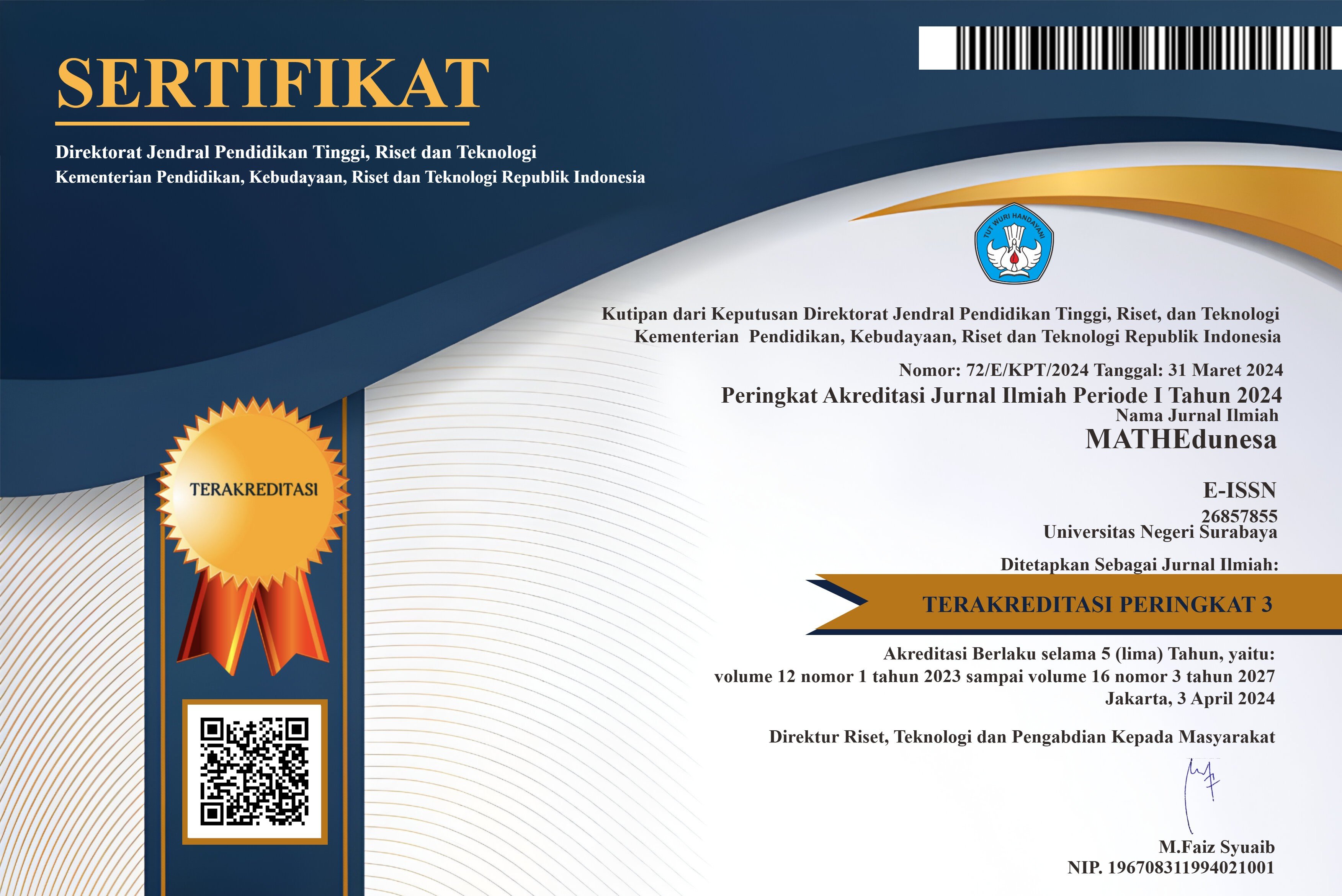Penalaran Analogi Peserta Didik SMP dalam Menyelesaikan Masalah Matematika Open-Ended
DOI:
https://doi.org/10.26740/mathedunesa.v14n1.p213-230Abstract
Analogical reasoning has an important role in mathematics, especially in solving problems. This study aims to describe the analogical reasoning of junior high school students in solving open-ended mathematics problems. The type of research used is descriptive with qualitative methods. The subjects in this study were 29 students of class VIII junior high school, the selection of subjects using Purposive which represents each category based on the data obtained. Data collection techniques using analogical reasoning tasks and interviews. The data were analyzed based on the four stages of analogical reasoning. The results showed that there were two categories of students' analogical reasoning when solving closed-ended source problems and open-ended target problems, namely: (1) Students with similar solution steps solve open-ended problems by mentioning and understanding all information and summarizing the material in both problems, finding similarities in both problems by mapping the characteristics of the source problem to the target problem, applying all the solution processes in the source problem to the target problem, and re-examining and believing the solution; (2) Students with some similar solution steps solve open-ended problems by writing and understanding all information but not summarizing the material, finding similarities in both problems in the outline of the problem and solving it by mapping the characteristics of the source problem to the target problem, apply some of the solution processes in the source problem to the target problem, and recheck but lack confidence in the solution. The results of this study can be used by educators as a reference to train students' ability to solve open-ended problems through analogical reasoning.
Downloads
Downloads
Published
Issue
Section
 Abstract views: 142
,
Abstract views: 142
, PDF Downloads: 157
PDF Downloads: 157




